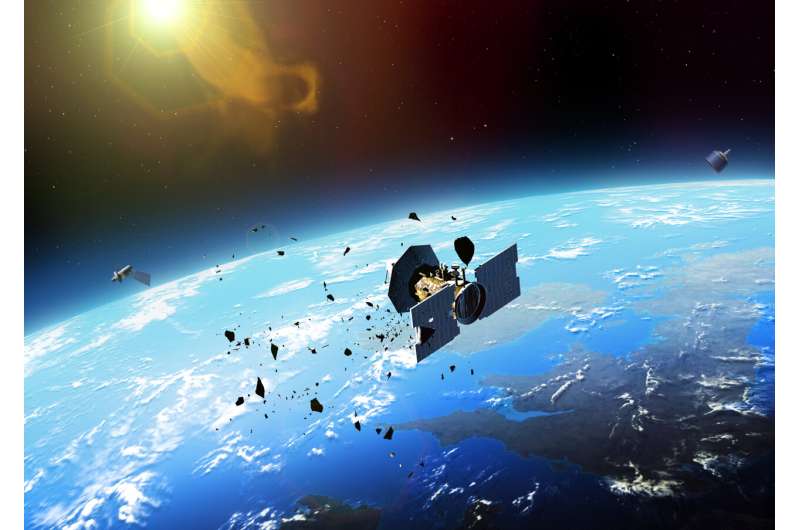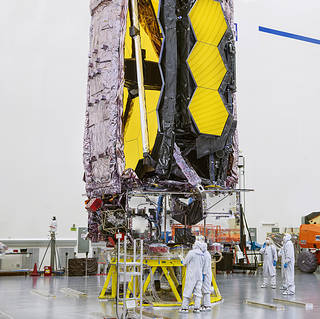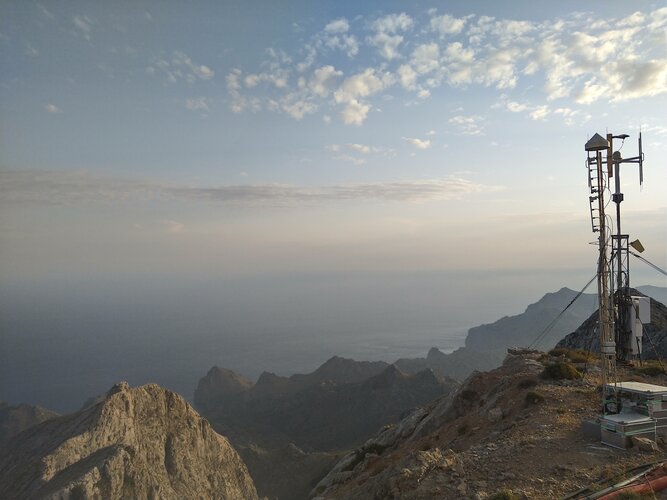
Copernical Team
New ALMA receivers achieve first light, set record for observational capabilities
 new set of receivers installed on antennas at the Atacama Large Millimeter/submillimeter Array (ALMA) have achieved first light. With it, they set a new record for the longest wavelengths visible with the radio array. The achievement has opened a window on the Universe previously inaccessible at the telescope, thanks to an international team of engineers, including engineers from the National Ra
new set of receivers installed on antennas at the Atacama Large Millimeter/submillimeter Array (ALMA) have achieved first light. With it, they set a new record for the longest wavelengths visible with the radio array. The achievement has opened a window on the Universe previously inaccessible at the telescope, thanks to an international team of engineers, including engineers from the National Ra Milky Way is not homogeneous
 In order to better understand the history and evolution of the Milky Way, astronomers are studying the composition of the gases and metals that make up an important part of our galaxy. Three main elements stand out: the initial gas coming from outside our galaxy, the gas between the stars inside our galaxy - enriched with chemical elements -, and the dust created by the condensation of the metal
In order to better understand the history and evolution of the Milky Way, astronomers are studying the composition of the gases and metals that make up an important part of our galaxy. Three main elements stand out: the initial gas coming from outside our galaxy, the gas between the stars inside our galaxy - enriched with chemical elements -, and the dust created by the condensation of the metal The Sun's 11-year cycle cannot explain global warming
 The Earth's global climate system fluctuates in 11-year and 3, 5-year cycles find Yizhak Feliks, Justin Small and Michael Ghil. The study was published in Climate Dynamics on July 15th.
The 11-year near-periodicity recalls that of the solar cycle, which climate-sceptics for decades have argued plays a major role in global warming. But the fluctuations between the Earth's climate system and
The Earth's global climate system fluctuates in 11-year and 3, 5-year cycles find Yizhak Feliks, Justin Small and Michael Ghil. The study was published in Climate Dynamics on July 15th.
The 11-year near-periodicity recalls that of the solar cycle, which climate-sceptics for decades have argued plays a major role in global warming. But the fluctuations between the Earth's climate system and Researchers enlist robot swarms to mine lunar resources
 With scientists beginning to more seriously consider constructing bases on celestial bodies such as the moon, the idea of space mining is growing in popularity.
After all, if someone from Los Angeles was moving to New York to build a house, it would be a lot easier to buy the building materials in New York rather than buy them in Los Angeles and lug them 2,800 miles. Considering the distan
With scientists beginning to more seriously consider constructing bases on celestial bodies such as the moon, the idea of space mining is growing in popularity.
After all, if someone from Los Angeles was moving to New York to build a house, it would be a lot easier to buy the building materials in New York rather than buy them in Los Angeles and lug them 2,800 miles. Considering the distan York Space Systems tackled Exotrail electric propulsion system for its Cislunar mission
 On 16 August, Exotrail signed a contract with US-based aerospace company YORK SPACE SYSTEMS for the delivery of one ExoMGTM - cluster2, a product configuration from Exotrail high thrust and flexible electric propulsion product family, for delivery by Q2 2022.
ExoMGTM - cluster2 system will be integrated onboard YORK SPACE SYSTEMS S-Class platform for a satellite mission aiming to orbit the
On 16 August, Exotrail signed a contract with US-based aerospace company YORK SPACE SYSTEMS for the delivery of one ExoMGTM - cluster2, a product configuration from Exotrail high thrust and flexible electric propulsion product family, for delivery by Q2 2022.
ExoMGTM - cluster2 system will be integrated onboard YORK SPACE SYSTEMS S-Class platform for a satellite mission aiming to orbit the Safeguarding clean water for spaceflight missions
 By all appearances, the universe beyond Earth is a vast, lonely, and sterile space. Yet, wherever humans may travel, an abundance of microbial life will follow.
In a first study of its kind, lead author Jiseon Yang at the Arizona State University Biodesign Institute, Center for Fundamental and Applied Microbiomics, and her colleagues characterized different bacterial populations isolated o
By all appearances, the universe beyond Earth is a vast, lonely, and sterile space. Yet, wherever humans may travel, an abundance of microbial life will follow.
In a first study of its kind, lead author Jiseon Yang at the Arizona State University Biodesign Institute, Center for Fundamental and Applied Microbiomics, and her colleagues characterized different bacterial populations isolated o NASA's next space telescope to launch in December

The James Webb Space Telescope, which astronomers hope will herald a new era of discovery, will launch on December 18, NASA said Wednesday.
The $10 billion observatory, which is a joint project by NASA, the European Space Agency and the Canadian Space Agency, will blast off on an Ariane 5 rocket from Spaceport in French Guiana.
Space junk traffic dangers to be tackled by first-of-its-kind research center

New ways of tackling the threat that space junk in our skies poses are being explored by University of Warwick scientists, as they pioneer new research that could help the UK fulfill its ambition to become a responsible spacefaring nation.
Scientists at a new Center for Space Domain Awareness are to focus attention on threats to the technology filling the skies above our heads in anticipation of a huge expansion in the number of satellites that provide vital services such as communications, navigation and Earth observation.
The University of Warwick is launching the Center for Space Domain Awareness to create a critical mass of research that tackles the growing threats to technology in Earth orbit. From the space junk that could collide with orbiting satellites, to the solar winds that could interfere with their electronics, the researchers at the new Center will pioneer new work to understand and characterize the near-Earth environment to support scientific, commercial, governmental and military applications.
NASA Readies James Webb Space Telescope for December Launch
 NASA plans to launch the James Webb Space Telescope into orbit Dec. 18, 2021, to serve as the premier deep space observatory for the next decade.
NASA plans to launch the James Webb Space Telescope into orbit Dec. 18, 2021, to serve as the premier deep space observatory for the next decade. New angle on reflected satnav yields sharper sea tracking

An experimental satellite navigation receiver station high atop Spain’s Mallorca island has opened up a novel view of the ever-changing face of the sea. By picking up satnav signals from the far horizon as they bounce off ocean waves, the receivers are able to measure sea surface height down to a scale of centimetres.
































